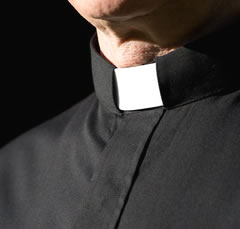Who are real priests, real saints?
Are there certain Christians who are in some way superior to others?
According to the Bible, all Christians are priests and all Christians are saints.
A priest is someone who speaks to God on behalf of the people. The concept was instituted in the Old Testament, where the tribe of Levi was set aside to be priests, in service to Israel [Deuteronomy 10:8].
Deuteronomy 10:8
At that time the Lord set apart the tribe of Levi to carry the ark of the covenant of the Lord, to stand before the Lord to minister and to pronounce blessings in His name ...
×Under the New Covenant, all believers in Jesus Christ are priests [1 Peter 2:9].
1 Peter 2:9
But you are a chosen people, a royal priesthood, a holy nation, a people belonging to God, that you may declare the praises of Him who called you out of darkness into His wonderful light.
×That means, if you are a Christian, one of your main tasks, apart from carrying the message of salvation, is to pray for the people around you. Our task is not to admonish unbelievers and criticise the government and our leaders, but to pray for them [1 Timothy 2:1-2].
1 Timothy 2:1-2
“I urge, then, first of all, that requests, prayers, intercession and thanksgiving be made for everyone – for kings and all those in authority, that we may live peaceful and quiet lives in all godliness and holiness.”
×This is not only the work of ordained ministers, bishops or pastors. It is the work of all believers.
The idea of a hierarchy of church priests came, not from the Bible, but from Ignatius, a church leader from Antioch, in about 100 AD. As the church grew from early house groups, he proposed a formal organisational structure based on the Roman system of city government.
Even the most respected apostles in the first church did not take titles and did not position themselves at the top of a hierarchy”
The Bible does say that God has appointed leaders in the church – apostles, prophets, teachers, pastors and others [1 Corinthians 12:27-31, Ephesians 4:11-13].
1 Corinthians 12:27-31
Now you are the body of Christ, and each one of you is a part of it. And in the church God has appointed first of all apostles, second prophets, third teachers, then workers of miracles, also those having gifts of healing, those able to help others, those with gifts of administration, and those speaking in different kinds of tongues. Are all apostles? Are all prophets? Are all teachers? Do all work miracles? Do all have gifts of healing? Do all speak in tongues? Do all interpret? But eagerly desire the greater gifts.
Ephesians 4:11-13
It was He who gave some to be apostles, some to be prophets, some to be evangelists, and some to be pastors and teachers, to prepare God’s people for works of service, so that the body of Christ may be built up until we all reach unity in the faith and in the knowledge of the Son of God and become mature, attaining to the whole measure of the fullness of Christ.
×These are job descriptions rather than titles [Matthew 23:8-10].
Matthew 23:8-10
“But you are not to be called ‘Rabbi’, for you have only one Master and you are all brothers. And do not call anyone on earth ‘father’, for you have one Father, and He is in heaven. Nor are you to be called ‘teacher’, for you have one Teacher, the Christ.”
×These leaders have spiritual authority [Hebrews 13:17].
Hebrews 13:17
“Obey your leaders and submit to their authority. They keep watch over you as men who must give an account. Obey them so that their work will be a joy, not a burden, for that would be of no advantage to you.”
×None of this suggests that God had an organisational hierarchy in mind, nor that He wanted a separate priestly caste, with titles and special clothing, among believers in Christ.
When Paul wrote to the Galatians (2:9) he said that James, Peter and John, those reputed to be pillars, gave him the hand of fellowship. This indicates that even the most respected apostles in the first church did not take titles and did not appoint themselves to the top of a hierarchy. It was reputation, the recognition of the hand of God upon them, that allowed this group of three, rather than one individual, to be considered the leadership.
I present this, not to denigrate the clergy, but to encourage all Christians to not see themselves as people of lesser spirituality or to think that ministry or service is only for an elite group.
As for the concept of a church council investigating the life of a “special” Christian and then announcing that person as worthy of being called a saint – the Bible does not see it that way. All believers are set apart, sanctified. They are all called saints. It is a status of legal right-standing with God, rather than experiential accomplishment. Because of our faith in Christ we are declared, by God, to have His righteousness imputed to us.
Related messages:


